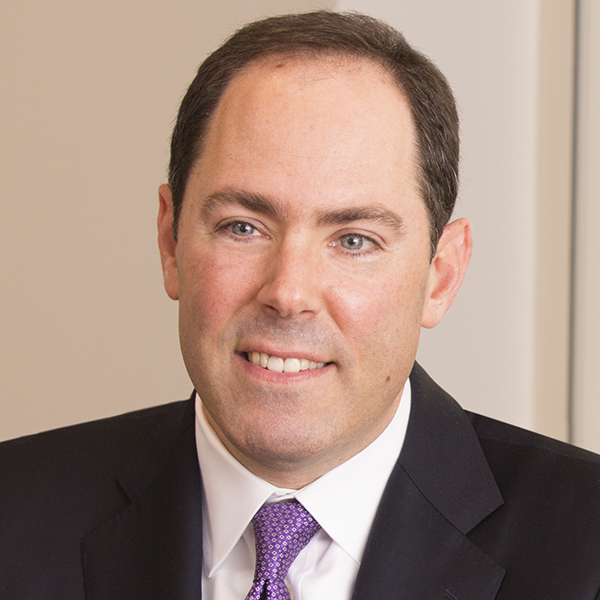Fixed Income
Global Equities
• Many corporate dividends are at risk for political, social and economic reasons.
• However, certain companies within industries such as consumer staples, pharmaceuticals, technology and utilities may offer greater dividend safety relative to companies in other industries
• Despite near-term risks, dividends remain an important component of total returns at a time of interest-rate cuts around the world.
The outlook for dividends in a recessionary world
The environment for dividends has become challenging given the sudden shutdown of most of the global economy. In periods of economic duress, it would not be surprising to see dividend cuts and suspensions. What’s been less anticipated is the degree to which ethical and social considerations are influencing dividend policy in a wide range of industries. It’s affecting the mindset of companies regardless of their financial strength or the stability of their business. This comes at a time when companies in many industries typically associated with dividend payments already faced evolving business dynamics spurred by technological and other changes.
We do not intend to suggest that the outlook is bleak for dividend-oriented strategies and investors. Even in this environment, some companies have maintained payouts and even raised them. But it does require a heightened awareness of the challenges that companies face and an active approach to portfolio management.
At Capital Group, we often engage in conversations with companies around the world regarding their approach to dividends. It is our belief that over long periods, dividends will remain an important component of total returns and provide an income stream that investors, retirees and charities may depend on, especially as many investors expect interest rates in developed markets to remain low for an extended period. In this paper, we discuss the challenges companies and investors face as well as the potential path forward.
Low-interest rate world
Dividend-paying companies remain an important source of income for investors

Past results are not a guarantee of future results.
As at 31 March 2020. Sources: MSCI, Refinitiv Datastream, Standard & Poor's
1. Government and regulatory pressures: These stressors are most acute in Europe. Companies in France, Spain and Germany all face varying degrees of government and regulatory pressure to suspend dividend payments. Many European companies have delayed their annual meetings and plan to re-evaluate conditions later this year. Given that many European companies pay dividends only once or twice a year instead of quarterly, the monetary impact and uncertainty are significant.
Capital Group portfolio manager Jeremy Burge wrote recently that companies may cut or delay dividends because they do not want their workers to think they are short-changing them to pay for the dividend. For now, this social sympathy tends to be more powerful in Continental Europe, but it could spread globally. However, there have been exceptions. For instance, Nestlé and Zurich Insurance Group accelerated plans to hold virtual annual meetings and committed to pay their dividends as planned, underscoring that not all dividends are created equal. Furthermore, German chemical giant BASF is sticking to its payout, and several European utilities have expressed strong support for maintaining their dividends during this turbulent time.
In the US, a range of companies across industries, including Boeing, Ford Motor Company, Macy’s and Delta Air Lines have announced they are suspending their dividends. In contrast, Procter & Gamble and Johnson & Johnson have raised their payouts and Starbucks is maintaining its dividend. Furthermore, it is possible that US companies receiving government assistance could see their dividends impacted as we have already seen in other countries.
2. Potential acquisitions: Disruptions in the economy have the potential to weaken smaller companies. Moreover, a prolonged economic slowdown may spur consolidation, creating incentives for stronger companies to use available capital to make acquisitions rather than pay dividends.
3. Changed attitudes among corporate boards and managements: In periods of economic weakness, it’s not uncommon to see changes to boards and managements. In those cases, it remains to be seen whether there will be the same commitment to dividends as their predecessors.
4. The after-effects of corporate leverage: Over the past few years, US companies in aggregate have distributed more in dividends and share buybacks than they generated in free cash flow. They largely bridged the gap by selling more debt, but that window has narrowed for many firms. As we look ahead, the length of the economic downturn and high levels of corporate debt could impact dividend payouts in the US and elsewhere. Many companies have also indicated the desire to reduce balance sheet leverage and have greater cash reserves.
Our latest insights
-
-
-
Long-Term Investing
-
-
RELATED INSIGHTS
This information has been provided solely for informational purposes and is not an offer, or solicitation of an offer, or a recommendation to buy or sell any security or instrument listed herein. Statements attributed to an individual represent the opinions of that individual as of the date published and may not necessarily reflect the view of Capital Group or its affiliates. The information provided is not intended to be comprehensive or to provide advice.
Risk factors you should consider before investing:
- This material is not intended to provide investment advice or be considered a personal recommendation.
- The value of investments and income from them can go down as well as up and you may lose some or all of your initial investment.
- Past results are not a guide to future results.
- Depending on the strategy, risks may be associated with investing in fixed income, emerging markets and/or high-yield securities; emerging markets are volatile and may suffer from liquidity
Hear from our investment team.
Sign up now to get industry-leading insights and timely articles delivered to your inbox.
Past results are not a guarantee of future results. The value of investments and income from them can go down as well as up and you may lose some or all of your initial investment. This information is not intended to provide investment, tax or other advice, or to be a solicitation to buy or sell any securities.
Statements attributed to an individual represent the opinions of that individual as of the date published and do not necessarily reflect the opinions of Capital Group or its affiliates. All information is as at the date indicated unless otherwise stated. Some information may have been obtained from third parties, and as such the reliability of that information is not guaranteed.
 Dale Hanks
Dale Hanks
 Marc Nabi
Marc Nabi